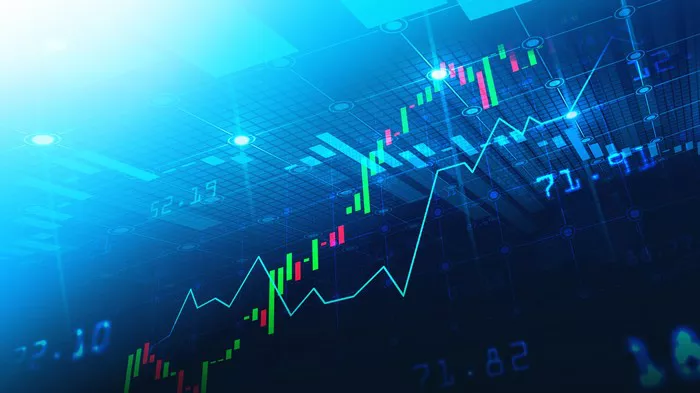Futures trading is a popular segment of the financial markets. Many people are drawn to it due to the potential for high returns and the excitement of trading. However, it also comes with significant risks. This article explores whether futures trading is hard to learn and provides insights into the complexities involved.
What is Futures Trading?
Futures trading involves buying and selling contracts that obligate the holder to purchase or sell an asset at a predetermined future date and price. These contracts can be based on various underlying assets, including commodities, currencies, interest rates, and stock indices.
Basic Concepts of Futures Trading
Contracts: Futures are standardized contracts traded on exchanges. Each contract specifies the quantity and quality of the underlying asset.
Leverage: Futures trading typically involves leverage, meaning traders can control large positions with a relatively small amount of capital.
Margin: Traders must maintain a margin account to cover potential losses. If the market moves against their position, they may be required to add more funds.
Expiry Dates: Futures contracts have specific expiration dates. Traders must either close their positions or roll them over to the next contract period.
The Learning Curve in Futures Trading
Learning futures trading can be challenging due to several factors. However, with dedication and the right resources, it is possible to become proficient.
Understanding the Market Dynamics
The futures market is influenced by a wide range of factors, including economic data, geopolitical events, and supply and demand dynamics. Beginners must learn to analyze these factors and understand how they impact prices.
Mastering Technical Analysis
Technical analysis involves studying price charts and using indicators to forecast future price movements. This skill is crucial for futures traders as it helps them identify entry and exit points.
Risk Management Techniques
Effective risk management is essential in futures trading. Traders need to understand concepts like stop-loss orders, position sizing, and risk-reward ratios to protect their capital.
Common Challenges for Beginners
Complex Terminology
Futures trading comes with its own set of jargon and technical terms. Understanding these terms is critical to grasping how the market operates.
Volatility and Leverage
The leverage in futures trading can amplify both gains and losses. This high volatility can be intimidating for beginners and requires a strong understanding of risk management.
Emotional Discipline
Emotional control is vital in trading. Fear and greed can lead to impulsive decisions that result in significant losses. Developing emotional discipline takes time and practice.
Essential Tools and Resources
Educational Materials
There are numerous books, online courses, and tutorials available that cover the basics and advanced aspects of futures trading. These resources can provide a solid foundation.
Trading Platforms
Choosing the right trading platform is important. A good platform should offer real-time data, advanced charting tools, and a user-friendly interface.
Simulated Trading
Many brokers offer simulated trading accounts, allowing beginners to practice without risking real money. This can be a valuable tool for gaining experience.
See Also:
Step-by-Step Learning Process
1. Start with the Basics
Begin by understanding the basic concepts of futures trading, including how contracts work, the role of exchanges, and the significance of expiry dates.
2. Study Market Influences
Learn about the factors that influence futures prices, such as economic indicators, weather conditions (for commodities), and geopolitical events.
3. Learn Technical and Fundamental Analysis
Develop skills in both technical analysis (studying price charts and indicators) and fundamental analysis (evaluating economic data and news).
4. Practice with a Demo Account
Use a simulated trading account to practice placing trades, setting stop-losses, and managing positions. This helps build confidence and experience without financial risk.
5. Develop a Trading Plan
Create a detailed trading plan that outlines your strategy, risk management rules, and goals. A well-defined plan can help guide your trading decisions.
6. Start Small
When you’re ready to trade with real money, start with small positions. This allows you to gain experience while minimizing risk.
7. Continuously Educate Yourself
The financial markets are constantly evolving. Stay updated by reading market news, attending webinars, and following experienced traders.
The Importance of a Mentor
Having a mentor can significantly accelerate the learning process. A mentor can provide guidance, share experiences, and help you avoid common mistakes. Look for someone with a proven track record and a teaching approach that resonates with you.
Psychological Aspects of Futures Trading
Dealing with Losses
Losses are an inevitable part of trading. It’s crucial to develop a mindset that accepts losses as learning experiences rather than personal failures.
Maintaining Discipline
Sticking to your trading plan is essential, especially during volatile market conditions. Discipline helps prevent emotional decision-making.
Handling Stress
Futures trading can be stressful due to the potential for large financial swings. Techniques such as meditation, exercise, and maintaining a healthy work-life balance can help manage stress.
Common Mistakes to Avoid
Overleveraging
Using too much leverage can lead to significant losses. It’s important to use leverage cautiously and understand its risks.
Ignoring Risk Management
Failing to implement risk management strategies can result in catastrophic losses. Always use stop-loss orders and position sizing to protect your capital.
Chasing the Market
Trying to catch every market move can lead to overtrading and losses. Focus on quality trades rather than quantity.
Neglecting to Keep a Trading Journal
Keeping a trading journal helps track your trades, analyze your performance, and identify areas for improvement. It’s a valuable tool for continuous learning.
Conclusion
Futures trading is undoubtedly challenging, but it is not insurmountable. With the right approach, dedication, and resources, it is possible to learn and succeed in futures trading. Understanding the market dynamics, mastering technical analysis, and implementing effective risk management are crucial steps. Emotional discipline and continuous education are equally important. While the learning curve may be steep, the rewards can be substantial for those who commit to the journey. Remember, every expert was once a beginner, and with perseverance, you too can master the art of futures trading.


